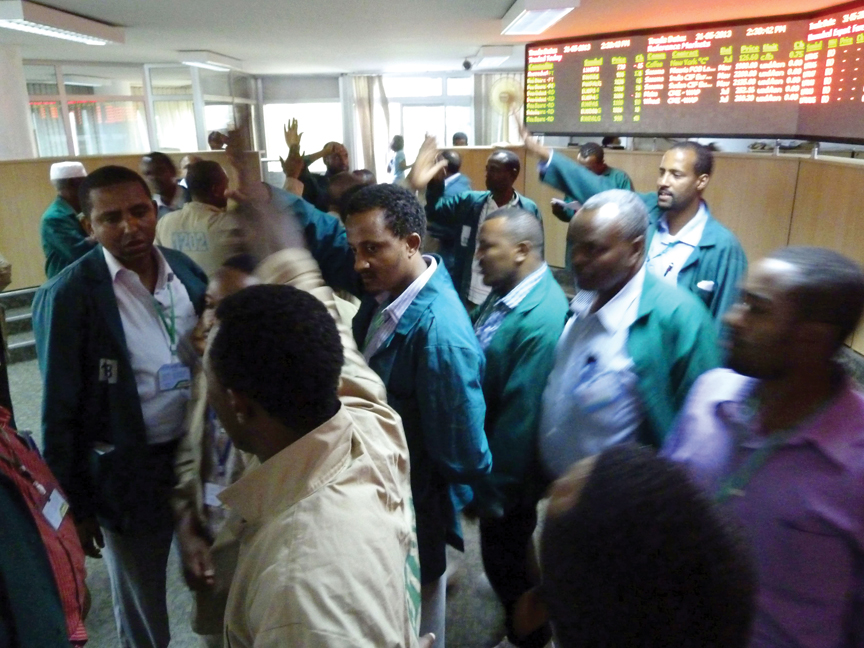AGENCE FRANCE-PRESSE A bell rings, and the floor of Ethiopia’s Commodities Exchange (ECX) is flooded with traders dressed in colored coats, waving hands, and shouting bids for coffee, sesame seeds and haricot beans.
After a feverish shouting match, prices are agreed upon, and the deal is sealed with a high five between buyer and seller.
Established in 2008, the ground-breaking ECX has boosted exports in Ethiopia, improved conditions for producers, and is now inspiring other countries in resource-rich Africa to set up their own exchanges to ensure their people are the main beneficiaries of commodity exports.
It has allowed “price discovery” for farmers, ECX Chief Executive Officer Anteneh Assefa said, explaining that, previously, producers had little knowledge of international market prices and could only rely on middlemen who pocketed hefty profits by selling marked-up goods. Previously, about a third of the price of goods sold went to the farmer, but those who sell through ECX take as much as 80 percent of the sale price home.
ECX has 329 registered members, including traders and producers, who work with some 12,000 people nationwide, from farmers to warehouse managers. It is a key organization in Ethiopia, where agriculture accounts for 40 percent of the gross national product and the bulk of the country’s exports. More than $1.1 billion worth of goods traded on the exchange in 2012.
Coffee is the dominant export commodity, earning the country more than $832 million in 2012.
The impact extends to buyers as well. Like producers, they are better informed about activity on world markets through the ECX, and since it has introduced rigid quality controls, it is working to ensure products can be trusted.

